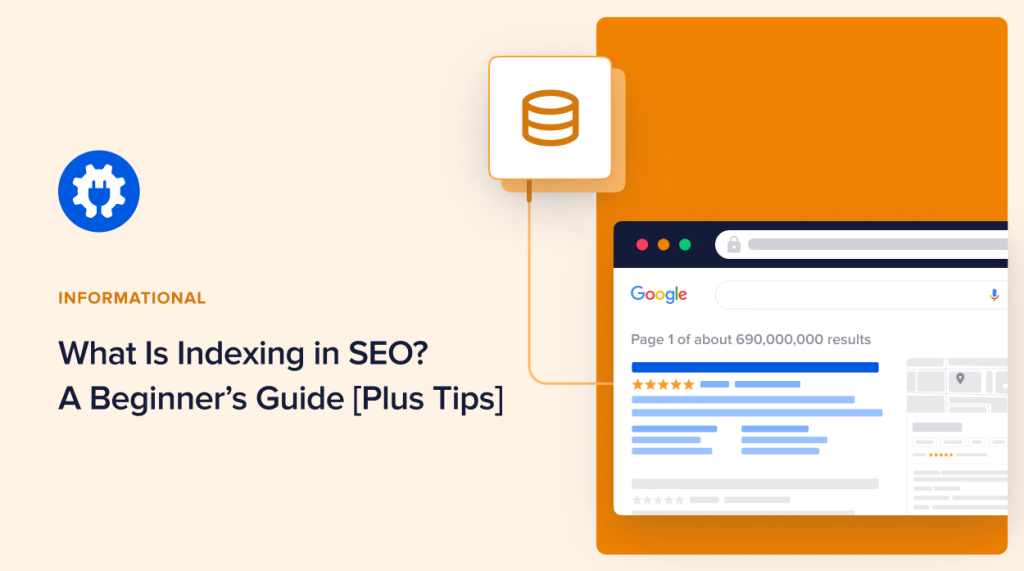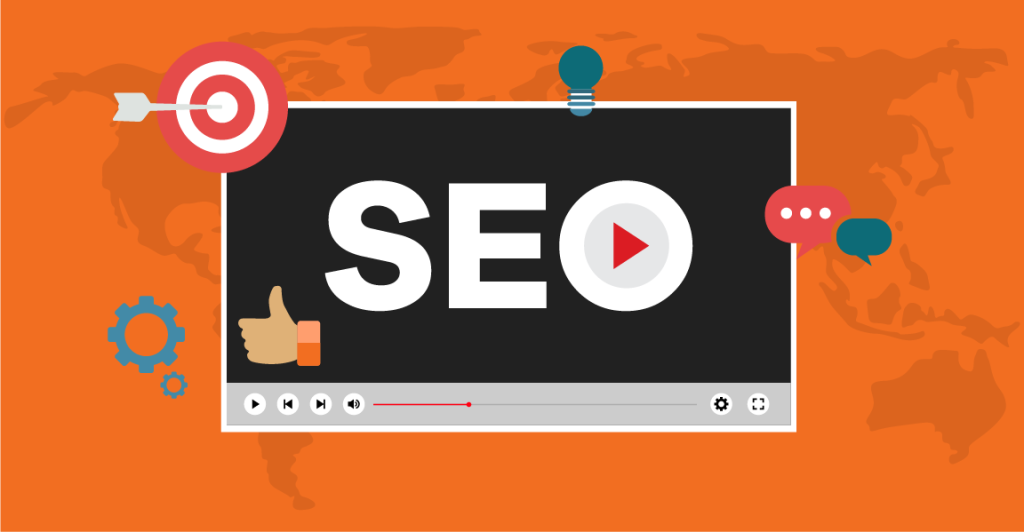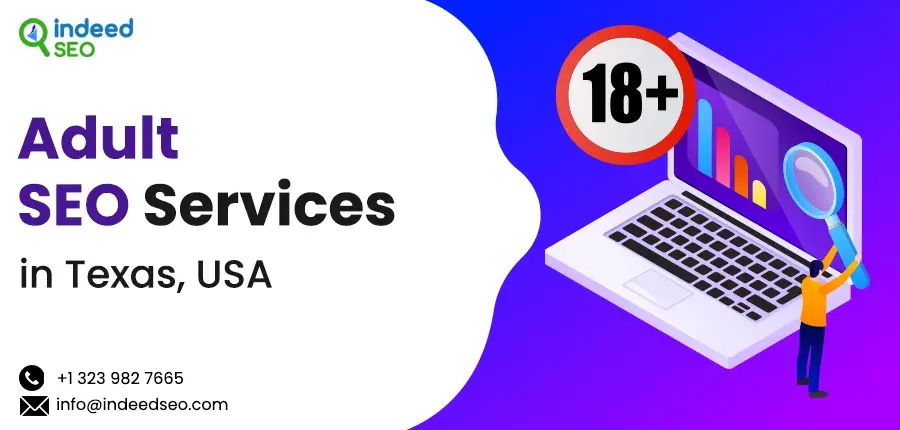Indexing in SEO refers to the process of adding web pages into a search engine’s database. It is crucial for visibility in search results.
Understanding the concept of indexing is fundamental for anyone aiming to improve their website’s online presence. It acts as the entry point for websites to appear in search engine results, making it a critical step in the SEO strategy. Search engines like Google use crawlers or bots to discover new pages and updates to include in their index.
This process enables your site to be found by potential visitors through organic search. Ensuring your content is index-friendly is vital for effective SEO, as it directly impacts your site’s ability to attract traffic and rank well. By focusing on creating high-quality, relevant content and optimizing your site structure, you can enhance your chances of being indexed swiftly and accurately.
Introduction To Indexing In Seo
Introduction to Indexing in SEO is a critical concept. It is how search engines, like Google, find and store web pages. Think of it as a library catalog. When your page is in the catalog, people can find it. Let’s explore the importance of indexing and how it affects your site’s visibility.
The Role Of Indexing
Indexing plays a key role in SEO. Without it, your pages are invisible to search engines. Here are the steps search engines follow:
- Crawl your site to discover content.
- Analyze the content to understand its topics.
- Add the page to their index if it meets quality standards.
This process ensures that users find relevant and valuable content when they search online.
Impact On Search Engine Rankings
Indexing directly impacts where your page lands in search results. Pages not indexed do not show up at all. Here’s how indexing affects rankings:
- Visibility: Indexed pages can appear in search results.
- Relevance: Search engines match indexed pages to user queries.
- Authority: Quality content boosts your site’s trust and ranking.
Regularly update your site with fresh, relevant content to stay indexed.
How Search Engines Index Websites
Understanding how search engines index websites is vital for SEO success. The process is twofold, starting with crawling and followed by indexing. Mastering these concepts can boost a site’s visibility online.
Crawling: The First Step
Search engines send out ‘spiders’ or ‘bots’ to find new content. This is known as crawling. These bots navigate the web via links. They review each page they find.
- Bots scan for new and updated content.
- They follow links from known pages to new ones.
- Pages with no inbound links may remain undiscovered.
The Indexing Process Explained
After crawling, indexing begins. Here, search engines organize information.
- Data from crawling is analyzed.
- Content is categorized based on keywords and relevancy.
- Quality content is crucial for a better index rank.
Proper use of HTML tags, like title and meta descriptions, aids this process. Websites should ensure they are easily accessible to bots. A site map can help with this.
| SEO Factor | Impact on Indexing |
|---|---|
| Title Tags | Help categorize pages |
| Meta Descriptions | Influence click-through rates |
| Content Quality | Improves index ranking |
| Site Map | Guides bots through the site |
Remember, indexing is a continuous process. Regular updates and SEO best practices keep a site visible to search engines.
Factors Influencing Indexation
Search engines use indexing to store and retrieve web content. SEO focuses on influencing this process. Various factors determine how and when a page appears in search results. Let’s explore these factors in detail.
Website Structure And Indexing
A site’s structure can help or hinder its indexation. A clear, logical layout is crucial. Search engines favor sites with well-organized content. This includes using proper headings, subheadings, and navigation menus.
- XML sitemaps guide search engines to all pages.
- Robots.txt files tell crawlers which pages to ignore.
- Internal links create pathways to different site sections.
These elements ensure all important pages are found and indexed.
Content Quality And Relevance
High-quality, relevant content is vital for indexation. Search engines seek to provide users with the best information. Content must be original, informative, and engaging.
| Quality Content Features | Benefits |
|---|---|
| Originality | Prevents duplicate content issues. |
| Engagement | Encourages longer visits and interactions. |
| Relevance | Matches user intent and search queries. |
Regular updates keep content fresh and improve indexation chances.
The Importance Of Sitemaps
Sitemaps guide search engines through a website. They list a site’s important pages. This makes sure search engines don’t miss content. Sitemaps are vital for SEO.
Creating An Effective Sitemap
A good sitemap acts like a map for search engines. It shows the paths to follow. Here’s how to make one:
- Include essential pages.
- Update it with new content.
- Ensure clean, simple structure.
Use tools to build sitemaps. They help create them quickly. Check the sitemap for errors. Correct them before submission.
Submitting Sitemaps To Search Engines
After creating a sitemap, submit it. This tells search engines about it. Here’s the process:
- Go to Google Search Console.
- Select ‘Sitemaps’.
- Enter sitemap URL.
- Click ‘Submit’.
Repeat this for other search engines. They have similar tools. Bing has its Webmaster Tools. Submitting a sitemap helps quicker indexing.
Robots.txt And Its Impact On Indexing
Robots.txt and Its Impact on Indexing play a vital role in SEO. This text file guides search engine robots. It informs them about the parts of a website they can access. Proper use of robots.txt can improve a site’s indexing. It can also block sections not meant for public view.
Understanding Robots.txt
Robots.txt is a file at the root of a website. It tells search engine crawlers which pages to index. This file uses the Robots Exclusion Protocol (REP). It sets rules for web crawling.
When a crawler visits a site, it looks for the robots.txt file first. If the file allows, the crawler proceeds to index the content. If not, it skips the disallowed sections.
Best Practices For Robots.txt Files
- Keep it simple: Use clear directives.
- Update regularly: Adjust rules as your site changes.
- Use wildcards: These characters () can represent multiple URLs.
- Check for errors: Mistakes can block important pages from indexing.
- Disallow sensitive areas: Keep private sections unindexed.
Remember, robots.txt is public. Do not include sensitive information. Always use it wisely to guide search engines effectively.
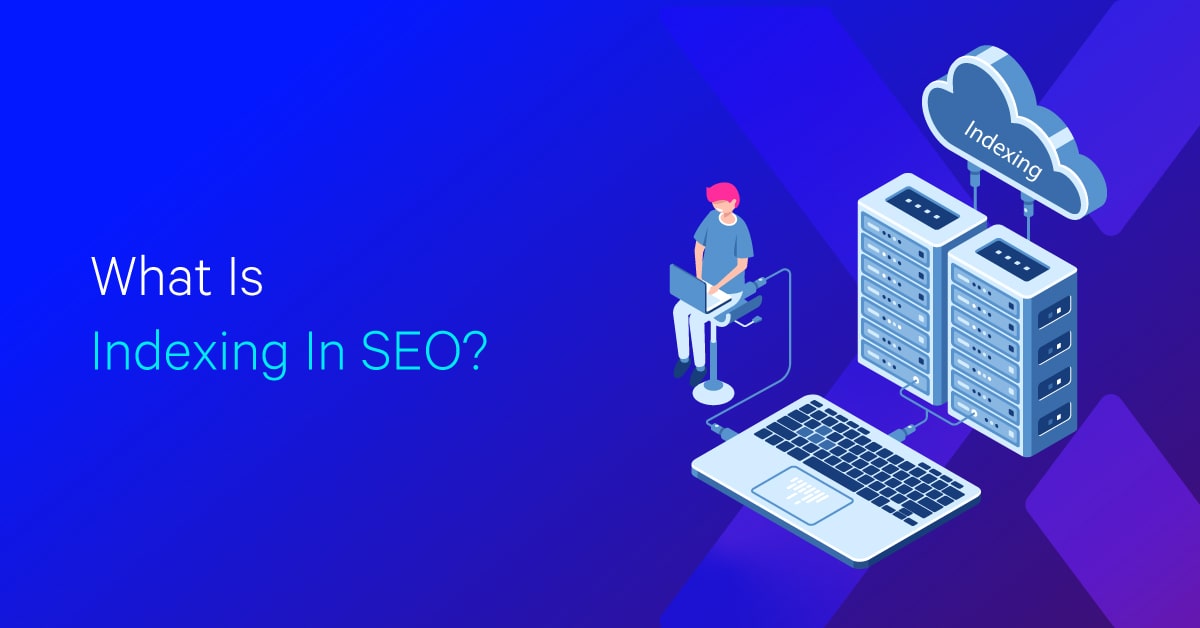
Credit: loganix.com
Seo Techniques To Improve Indexing
Understanding how to boost your website’s indexing is crucial for SEO success. Effective SEO techniques can enhance your site’s visibility. Let’s explore some proven strategies.
Internal Linking Strategies
Internal links connect your website’s pages. They help search engines find new content. Use them wisely to improve site structure. Here are key tips:
- Use descriptive anchor texts: They guide both users and search engines.
- Link relevant content: This enriches user experience and boosts page views.
- Keep a balanced approach: Don’t overdo it. Too many links can be spammy.
Optimizing Page Load Speed
Page load speed is vital for both ranking and user experience. A fast-loading page retains visitors better. Follow these steps to optimize:
- Compress images: Use tools like TinyPNG to reduce image size without losing quality.
- Minimize HTTP requests: Reduce the number of elements (scripts, images, CSS files) on your page.
- Use browser caching: Store parts of your site locally on visitors’ browsers to speed up loading times.
Common Indexing Issues And Solutions
Search engines must find and understand web content. This process is indexing. Yet, websites may face indexing challenges. Knowing these issues helps solve them.
Dealing With Duplicate Content
Duplicate content confuses search engines. They struggle to choose which version to index. The solution lies in using the
Here’s what to do:
- Identify duplicate content with tools like Google Search Console.
- Implement the
- Avoid creating similar pages in the future.
Fixing Crawl Errors
Search engines must crawl a site before indexing. Crawl errors stop this process. These errors include broken links and server issues. They prevent search engines from accessing content.
To fix crawl errors:
- Check Google Search Console for crawl error reports.
- Correct the URLs or server issues causing the errors.
- Request a re-crawl of the fixed pages.
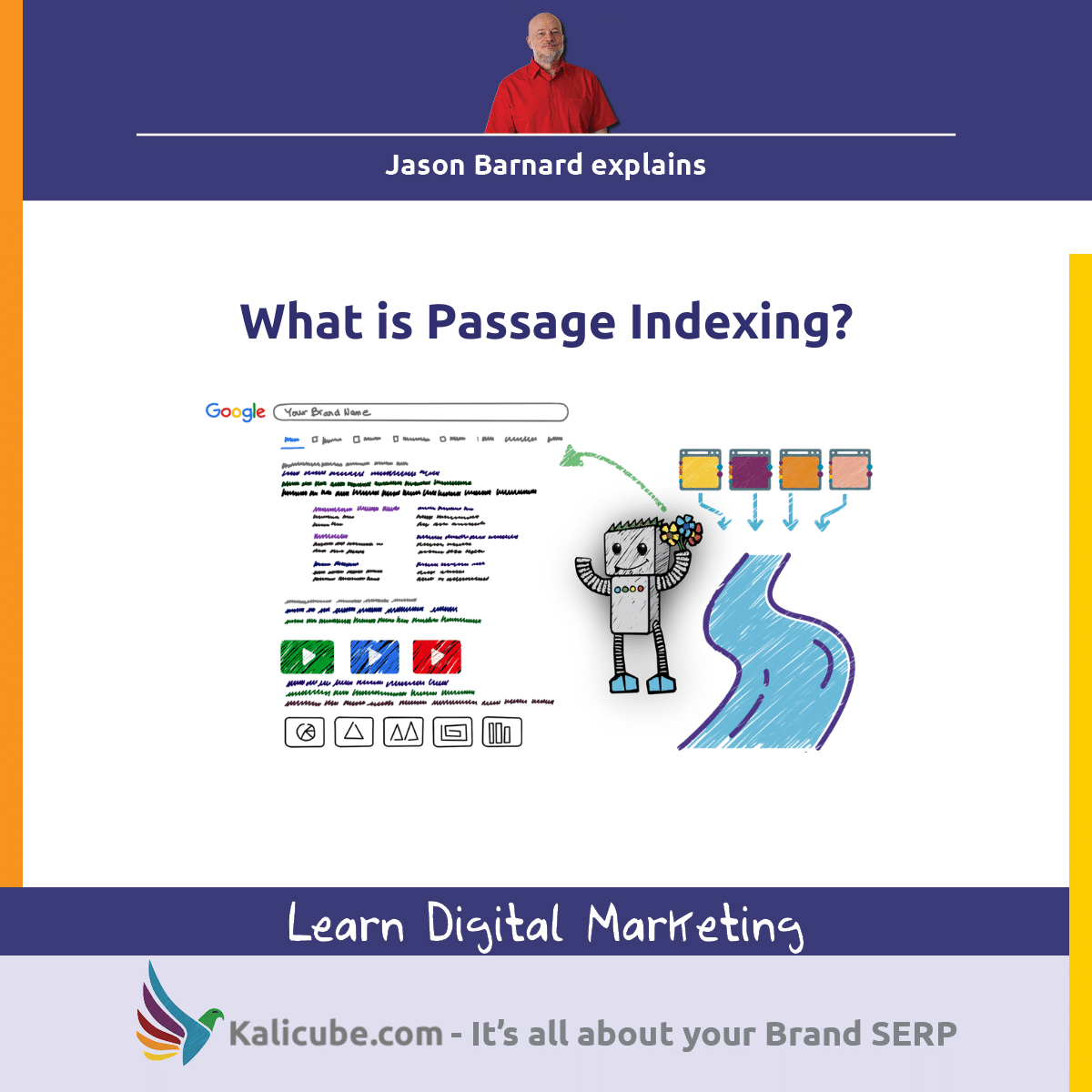
Credit: kalicube.com
Monitoring Your Indexing Status
Monitoring Your Indexing Status is crucial in SEO. It tells you if search engines can find your pages. To rank high, your pages must be in search engine indexes. Let’s check how you can monitor your site’s indexing status.
Using Google Search Console
Google Search Console is a key tool for webmasters. It helps track site performance. Here’s how to use it:
- Sign in to Google Search Console.
- Select your website.
- Click on ‘Index’ then ‘Coverage’.
- View the report for indexed pages.
This tool shows pages that Google has or hasn’t indexed. It points out issues too.
Analyzing Index Coverage Reports
Index Coverage Reports give insights on indexed pages. They show errors and valid pages. Here’s what they offer:
- Error: Pages not indexed due to issues.
- Valid with warnings: Indexed but with issues.
- Valid: Successfully indexed pages.
- Excluded: Pages intentionally not indexed.
Regularly check these reports. Fix errors to improve indexing. This boosts SEO performance.
Future Of Indexing In Seo
Indexing lays the foundation for SEO success. It’s how search engines store and retrieve content. The future of indexing promises to transform how content ranks and reaches audiences.
Emerging Trends In Seo
- Mobile-first indexing: Search engines favor mobile-friendly sites.
- Schema markup: This helps search engines understand content better.
- AI and machine learning: They predict user behavior and personalize results.
Adapting To Search Engine Algorithm Updates
Search engines update algorithms regularly. Sites must adapt to maintain rankings.
| Algorithm Update | Focus Area |
|---|---|
| Core Updates | Overall quality and relevance. |
| Page Experience | User experience signals. |
Keep content fresh and aligned with these updates. This ensures visibility and relevance.
Credit: befoundonline.com
Frequently Asked Questions
What Is Crawling And Indexing In Seo?
Crawling is when search engines send out bots to discover updated content. Indexing involves storing and organizing the content found during crawling. Both are crucial for SEO as they help search engines understand and rank web content.
What Is Indexing Explain?
Indexing refers to the process search engines use to organize and store web content. This method allows for quick retrieval of relevant information during user searches. Essentially, it helps your website become more visible and accessible online.
What Is Index Now In Seo?
IndexNow is a new SEO protocol. It allows websites to instantly notify search engines about content changes. This ensures faster indexing and visibility.
What Is Indexing And Caching In Seo?
Indexing in SEO refers to search engines storing web pages in a database. Caching is when a static page version is saved for faster loading during subsequent visits. Both processes enhance user search experiences by improving access speed and relevancy.
Conclusion
Understanding indexing is crucial for SEO success. It’s the foundation that allows search engines to retrieve your site. By ensuring your pages are visible and indexed, you boost organic traffic potential. Remember, a well-indexed site improves visibility and helps you rank higher.
Keep your content index-friendly and watch your SEO efforts flourish.
